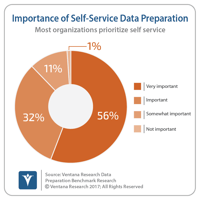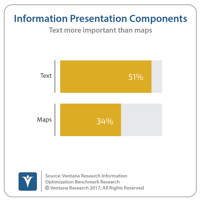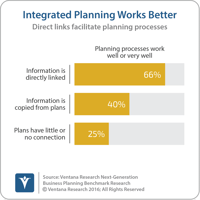The HCM software market continues to evolve at an unprecedented pace. The innovations we’re seeing are exciting new features and capabilities, but many have more profound impacts: They provide organizations with more effective ways to serve their customers and enhance their experience. HR’s customers –employees, managers, retirees, candidates, leadership and external partners – can now access and take advantage of native mobile apps, virtual agents and chatbots (via text or voice) as well as...
Read More
Topics:
Human Capital Management,
Employee Engagement,
Employee Productivity,
HR technology,
HCM Systems
We at Ventana Research recently published our research agendas for 2018. The world of data and information management continues to evolve, as does our research on the use of these technologies to improve your organization’s operations. Relational databases are no longer the only viable enterprise data store as more organizations adopt a polyglot database infrastructure. And while their exact form may still be changing, as I have recently written, big data technologies are here to stay. Our Data...
Read More
Topics:
Data Governance,
Information Management,
Data,
blockchain
The use of blockchain distributed ledgers in business processes is now a common theme in many business software vendors’ presentations. The technology has a multitude of potential uses. However, presentations about the opportunities for digital transformation always leave me wondering: How is this magic going to happen? I wonder this because the details about how data flows from point A to point B via a blockchain are critically important to blockchain utility and therefore the pace of its...
Read More
Topics:
Planning,
Predictive Analytics,
Forecast,
FP&A,
Machine Learning,
Reporting,
budget,
Budgeting,
Continuous Planning,
Analytics,
Data Management,
Cognitive Computing,
Integrated Business Planning,
AI,
forecasting,
consolidating
We at Ventana Research recently published our research agendas for 2018. Analytics and business intelligence are evolving and so is our research on their use across practice areas. Earlier research has shown that analytics can deliver significant value to organizations; for example, our predictive analytics research shows that 57 percent of organizations reported achieving a competitive advantage and half created new revenue opportunities with predictive analytics. Waves of investment in...
Read More
Topics:
Machine Learning,
Analytics,
Business Intelligence,
Collaboration,
Internet of Things,
IOT,
Artificial intelligence,
natural language processing,
Natural Language Generation
Ventana Research uses the term “predictive finance” to describe a forward-looking, action-oriented finance organization that places emphasis on advising its company rather than fulfilling the traditional roles of a transactions processor and reporter. Technology is driving the shift away from the traditional bean-counting role. The cumulative evolution of software advances will substantially reduce finance and accounting workloads by automating most of the mechanical, rote functions in...
Read More
Topics:
Planning,
Predictive Analytics,
Forecast,
FP&A,
Machine Learning,
Reporting,
budget,
Budgeting,
Continuous Planning,
Analytics,
Data Management,
Cognitive Computing,
Integrated Business Planning,
AI












